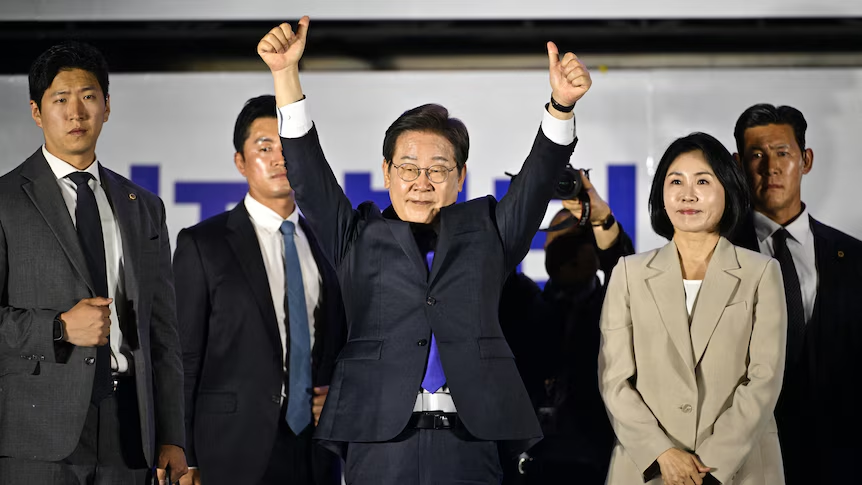Already a subscriber? Make sure to log into your account before viewing this content. You can access your account by hitting the “login” button on the top right corner. Still unable to see the content after signing in? Make sure your card on file is up-to-date.
South Korea’s newly elected President has vowed to revive peace talks with North Korea while strengthening alliances with the United States and Japan.
Some shit you should know before you read: If you’re unaware, South Korean President Lee Jae-myung secured his position after winning a snap election. He won 49.3% of the vote, defeating conservative rival Kim Moon-soo, who received 41.3%. Lee succeeds Yoon Suk Yeol, the former President who was impeached and removed from office in April 2025 following his failed and highly controversial attempt to impose martial law in December 2024. At the time, Yoon claimed that the emergency measure was necessary to prevent what he described as growing civil unrest and threats to public safety by North Korean operatives. However, his actions were widely condemned by lawmakers as an unconstitutional overreach of executive power, leading to a Constitutional Court ruling that upheld his impeachment. This constitutional crisis plunged South Korea into a period of political instability, marked by protests and deepened partisan divides.

What’s going on now: While speaking at his inauguration, President Lee Jae-myung vowed to pursue a dual-track approach toward North Korea, combining strong military deterrence with renewed diplomatic engagement. He promised to “open a communication channel with North Korea and establish peace on the Korean Peninsula through talks and cooperation.” At the same time, Lee reaffirmed a firm commitment to national defense, stating his government would respond to North Korean threats through “strong deterrence” grounded in the South Korea–US alliance. His approach marks a sharp departure from that of his predecessor, Yoon Suk Yeol, who focused heavily on pressure and sanctions.
Lee emphasized that his foreign policy would be rooted in “pragmatic diplomacy based on national interests” and pledged to strengthen trilateral cooperation with the United States and Japan. He addressed prior criticism that he was too close to China or North Korea by clarifying that South Korea’s alliance with the United States remains the cornerstone of its national security strategy.
This all comes as North Korea’s state media published a brief acknowledgment of Lee Jae-myung’s election, an unusual move given Pyongyang’s history of inflammatory rhetoric toward new South Korean leaders. The official newspaper Rodong Sinmun ran a small-font, two-sentence report on the last page of its edition the day after Lee’s victory was certified, stating that the South Korean election took place “just two months after the president was impeached due to the ‘Emergency Martial Law Situation.‘”







